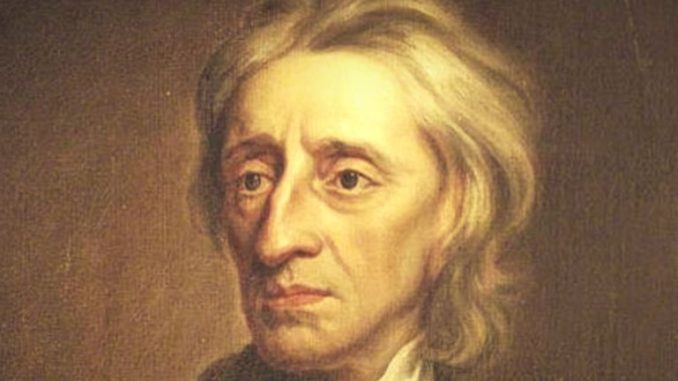
MEN being, as has been said, by nature, all free, equal, and independent, no one can be put out of this estate, and subjected to the political power of another, without his own consent.
~ John Locke, Second Treatice of Government, 1689
John Locke was an English Philosopher in the 17th century. He was one of the big thinkers in the Enlightenment Movement, which among other ideas, put forth the notion of natural rights.
Locke usually described these natural rights as the right to life, liberty, and property. Sound familiar? It is largely credited as the inspiration for Thomas Jefferson in writing the Declaration of Independence about the rights to “life, liberty, and the pursuit of happiness”.
A main part of this philosophy is that humans are born equal so that no one man has the right to rule over another man without consent. Prior to this thinking, most people in the world were under the rule of monarchs who obtained their power through inheritance. The people had no choice.
Locke explained these ideas in a number of writings, with the “Second Treatise of Government” being probably the most significant and popular.
The Enlightenment Movement changed the thinking of the people and these ideas developed for nearly a century leading up to the American Revolution. There was a deep belief in these principles among the American Patriots and Founders and they were the inspiration for, and the foundation of, the Constitution and the resulting structure of Government.
Locke believed that a government can only have legitimacy through the consent of the governed. Yes, but what about slavery? Of course, that was a huge conflict and contradiction at the time. Many of the people and Founders at the time of the Revolution wanted to abolish slavery right away, in large part due to the seeds planted by the Enlightenment Movement.
It would, unfortunately, take almost another century to finally resolve that contradiction.
The only way whereby any one divests himself of his natural liberty, and puts on the bonds of civil society, is by agreeing with other men to join and unite into a community for their comfortable, safe, and peaceable living one amongst another, in a secure enjoyment of their properties, and a greater security against any, that are not of it.
~ John Locke, Second Treatice of Government, 1689
